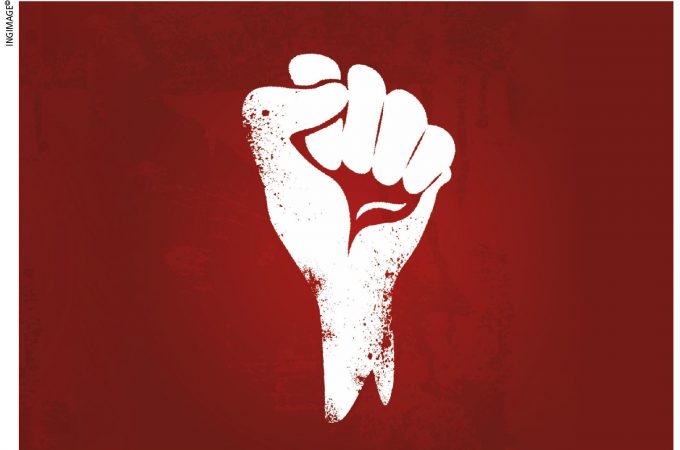POWER SHARING
Sri Lanka’s ethnic majority Sinhalese seemed to have overwhelmingly placed their trust in Gotabaya Rajapaksa at the recent presidential poll. He has repeatedly stated that further devolution of power is not possible based on an assessment of present (and past) levels of political consciousness on the issue.
HEARTS AND MINDS MUST CHANGE
Prospects for power sharing require a change in mindset – Dr. Jehan Perera
The president has said the ethnic majority is not in favour of devolving power, which is why it is not feasible and cannot be implemented.
For nearly 100 years, the Tamil people’s demand for power sharing arrangements with the ethnic majority has been present despite being rejected time and again.
The first such demand was in the 1930s when Tamil politicians called for a 50:50 power sharing arrangement between the ethnic majority and minorities, which was to be at central government level. When this demand was rejected by British colonial rulers at the time, it changed to devolution of power at the regional level to the north and east.
In the post-independence era, the Tamil polity has demanded power sharing in the form of a federal arrangement (where the constitution is supreme) or a strengthened system of devolution of power (where the central government remains supreme).
The concept of devolution is viewed with suspicion by the Sinhalese majority given its association with the campaign for separation by the LTTE and Tamil politicians in the past. But this is not an unchangeable perception.
Former President Chandrika Kumaratunga’s government attempted to consolidate the devolution of power through a new constitution in 2000. It conducted an awareness campaign called ‘Sudu Nelum,’ which changed perceptions so that public opinion surveys indicated a majority favouring devolving power.
While the people supported devolution, politicians did not – and the constitutional bill was defeated in parliament by opposition parties.
The most recent attempt was in 2015 when the yahapalanaya government sought to draft a new constitution. But it didn’t take off due to that regime’s inability to put forward its own formulation of a solution.
Since the watershed election of 1956 – when the main slogan was ‘Sinhala Only’ wherein it was made the single official language amid opposition from Tamil speakers – the devolution of power has been akin to an article of faith to the Tamil polity.

It has not been willing to move from that position despite its rejection by the Sinhalese majority or failure of successive governments to implement promises with regard to it.
If solving the problem is to be considered, the sentiments of ethnic minorities must also be heeded, and goodwill and trust building from the community level needs to be taken to the national front.
As much as the Sinhalese need to be made aware of Tamil sentiments on nationalism, so must Tamil people be urged to realise the concerns of Sinhalese. Rajapaksa’s preference for development as a way to peaceful relations in Sri Lanka has resonance in view of general Sinhalese opposition to the devolution of power, which has been manifested over time.
The international trend is in favour of populism, which the president’s campaign team skilfully used to mobilise Sinhalese nationalism at the presidential election. But it means that overcoming longstanding Tamil nationalism through development alone is an unlikely prospect. With them too, nationalism will tend to prevail over other considerations.
A realistic appraisal is that if it’s to be ‘no’ to devolution, the problem will not be solved. There has to be movement to a midpoint where there’s a change of heart and mind on all sides.
Rajapaksa’s strength as a national leader who can overcome the fear and suspicion of the Sinhalese majority is due to his leadership in the war with the LTTE, which secured a victory that few thought was possible. As the prime national leader at this time, he will need to reach out to minorities and find solutions to their concerns.
The president has expressed a belief that development is the way to push forward the reconciliation process with minorities. And it is likely that economic development as envisaged by Rajapaksa will make the ‘ethnic conflict’ easier to resolve. Prosperous and gainfully employed people are less likely to agitate violently for political change; but they will want it nonetheless.
Catalonia in Spain, Scotland in the UK and Quebec in Canada are prosperous territories but continue to call for self-rule. So while the problem may become easier to resolve, it won’t go away through economic development alone.







As Dr. Perera says, if we are to solve this problem, the views of Sri Lanka’s ethnic minorities must also be heard and there must be a process to build trust among the communities. If we do not do this, we will be exposed to a new threat and we do not want that.
Also, as he says, there must be a high level of trust between the majority community and the Tamil people so that there is no need to devolve power. We should unite as one nation but this must be based on equal treatment for all our people irrespective of their ethnicity. I agree with the President that devolving power is not feasible, so the solution lies in sharing power in a way that is acceptable to everyone.
Definitely agree that minority views are important.